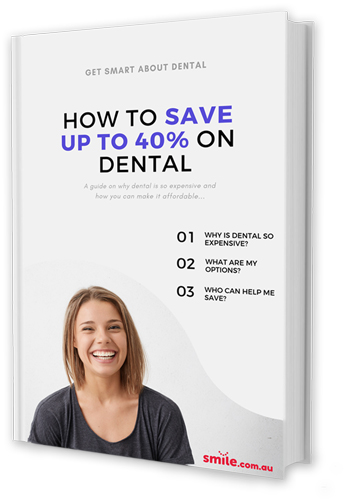Pregnancy & Dental Care
Reviewed Nov 2023 by Our Content Experts
If you are pregnant or thinking about becoming pregnant, now is the time to pay extra attention to your teeth and gums. You may have heard these two common myths about pregnancy: "you lose a tooth for every pregnancy you have" and "If you don't get enough calcium during your pregnancy, your body takes it from your teeth."
Both are false. The calcium your baby needs is provided by your diet, not your teeth. If dietary calcium is lacking, however, your body provides the mineral from your bones.
Tooth loss often is the result of tooth decay or periodontal (gum) disease not pregnancy. Tooth decay results from repeated acid attacks on tooth enamel. It begins with plaque, a film of bacteria that constantly forms on teeth. The bacteria transform sugars and starch found in most foods and beverages into harmful acids.
Plaque can irritate gums making them red, tender and likely to bleed. This condition called gingivitis can lead to more serious gum diseases. Women with previously healthy smiles may notice that their gums become swollen or inflamed or bleed during pregnancy. This condition sometimes called 'pregnancy gingivitis' results from changing hormone levels. It is plaque, however, not hormone levels, that is the major cause of gum disease.
Pregnancy and Protecting Your Smile
Good oral care is good for mother and baby. That's because some research suggests that serious gum disease called periodontitis is linked to premature birth and low birth weight.
Prevent tooth decay and gingivitis by keeping your teeth clean especially around the gumline. More frequent cleanings during your second or early third trimester may be recommended to help control gingivitis.
Brush twice a day with fluoride toothpaste. Floss or use another type of interdental cleaner once a day to remove debris from between the teeth. If you need help controlling plaque, our approved cosmetic and general dentists may recommend an anti-microbial mouthrinse.
Pregnancy and Dental Visits
Continue regular dental visits throughout your pregnancy. Non-emergency treatment generally can be performed safely during this time. However, you may be advised to avoid elective treatment during the first three months of the pregnancy. If you have a history of miscarriage or some other medical condition, a participating dentist may recommend postponing treatment.
Some drugs and anesthetics can be used during and after dental treatment to make you more comfortable. Inform a participating dentist of any prescription or over-the-counter drug you are taking. Your physician may be consulted to determine the drugs such as painkillers or antibiotics you may take safely during the pregnancy and dental treatment.
A radiograph (x-ray) may be needed for dental treatment or a dental emergency that can't wait until after the baby is born. Radiation from dental radiographs is extremely low. A leaded apron minimises the abdomen's exposure to x-rays.
Advise your smile.com.au dentist if you are pregnant or suspect that you might be or if there is any change in the medications you take or any particular advice your physician provided. This will help your smile.com.au dentist determine the best time for treatment and whether to modify your treatment plan to better suit your needs and the baby's health.

